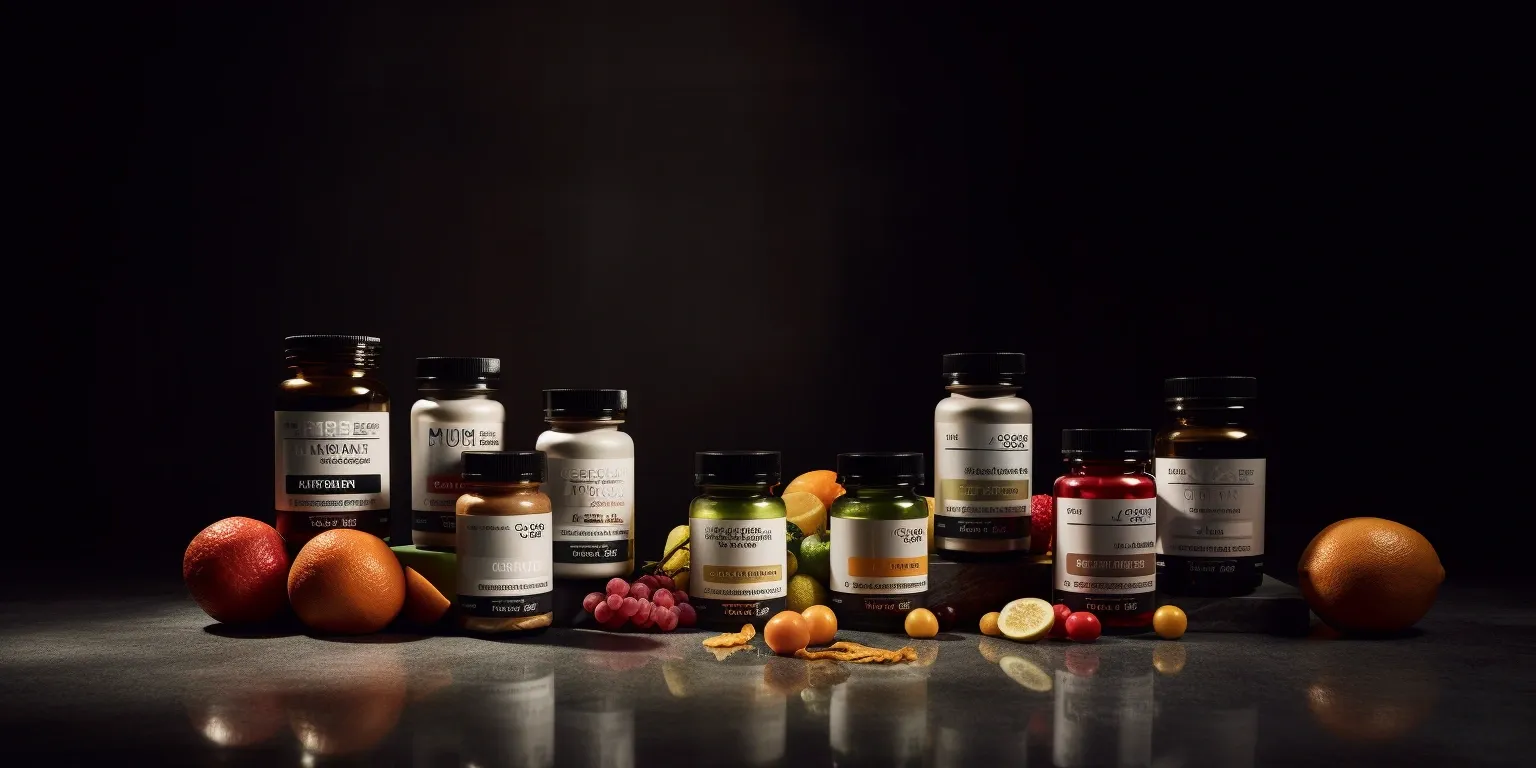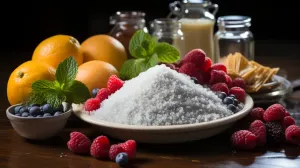Positioned just below the male bladder, the prostate is a fluid-producing gland essential to male reproductive function. Under ordinary circumstances, its unique ‘donut’ shape allows the passage of urine and semen through the urethra without difficulty -- but if the prostate enlarges for any reason, symptoms make themselves known: urinary difficulties, and sometimes, pain. Which foods and nutrients may reduce risk of developing prostate pathologies, and which ones may ‘feed’ disease? Here’s a brief look at the most common prostate diseases, some case studies and some evidence-based nutrition to support the gland.
Prostatitis
Whether it’s acute or chronic, prostatitis is an uncomfortable inflammatory condition that doesn’t just affect the passage of urine; it can also result in pain, erectile dysfunction and fertility problems. It may be surprising to learn that the prostate gland is more vulnerable to infection than the bladder because it is the first tissue that an acquired pathogen encounters once it gets into the urethra from outside the body. With symptoms similar to the female bladder infection (UTI), prostatitis is often treated successfully with antibiotics. But what if that doesn’t work?
Men can suffer for months with the discomfort of chronic prostatitis that is resistant to standard treatment. Take the case of Jimmy*, a university student who arrived in my nutritional counseling practice desperate for help after nearly a year with the condition. Not yet twenty, Jimmy wanted to know if nutrition could help him overcome the pain of chronic prostatitis. Taking a look at Jimmy’s diet, I noticed frequent consumption of sugar, pizza and beer. Under my supervision Jimmy immediately dropped sugar, milk products, gluten, alcohol and processed foods—replacing them with fresh, natural foods---and with the support of an anti-fungal medication prescribed by an open-minded medical doctor, Jimmy overcame his stubborn, antibiotic-resistant chronic prostatitis within just a couple of weeks.
Eat for Immunity
Whether we’re talking about prostatitis or any other infection, sugar can make infection difficult to overcome for a couple of reasons. For one, it can suppress the immune system’s pathogen-scavenging ability for up to 5 hours after ingestion. Second, sugar directly feeds micro-organisms like bacteria and yeast, allowing them to multiply quickly. So it makes sense to limit intake of concentrated sugars, alcohol (a well-established toxin) and fast food in effort to lighten the load on the immune system and make room for more nutrient-dense foods in the diet. Since that can be a challenge for many, supplementing immune-building nutrients like vitamins C, D and zinc is a good way to provide steady immune-support.
Benign Prostatic Hyperplasia (BPH)
The condition known as benign prostatic hyperplasia (BPH)—enlarged prostate-- affects about 50 percent of 50-year old men, and 80 percent of 80-year old men. What does BPH feel like? It’s like trying to push urine out of a hose that’s been squeezed nearly shut. While pain is usually not present, a man with BPH will find urination more effort as the growing gland puts pressure on the urethra, making it hard to completely empty a full bladder. This results in more trips to the bathroom, especially during the night, to try and pass urine.
All this is happening due to a gradual change in hormone balance in older men. As ‘good’ testosterone drops with age, a type of testosterone called DHT (di-hydro-testosterone) actually increases, resulting in prostate growth.
Drugs prescribed to manage BPH work by blocking an enzyme called 5-alpha-reductase—an enzyme responsible for converting testosterone into DHT. But a doctor may be reluctant to prescribe such a treatment if the client doesn’t quite fit the mold. Take my client Robin*, for instance. At forty years old, Robin was experiencing symptoms of BPH sooner than most men. His medical doctor would not provide a prescription, but Robin was growing weary from the multiple sleep interruptions caused by the need to urinate. So the first thing we did was remove cow’s milk products from Robin’s diet and replace them with a calcium-fortified substitute. The improvement was so dramatic within 3 weeks that Robin decided that was all he needed to do to get his nocturia (night time urination) resolved.
Consider Non-dairy Sources of Calcium
So, why did replacing milk products with a non-dairy calcium-fortified beverage help Robin? Along with red meat and its processed products, like bacon, dairy products are one of the higher sources of saturated animal fats---which seem to increase the activity of that undesirable enzyme, 5-alpha-reductase. In turn, the production of DHT drops, and prostate growth is halted.
Prostate Cancer
After non-melanoma skin cancers, this is the most commonly diagnosed cancer and third leading cause of death in Canadian men. Fortunately, if caught early, prognosis is very good, with 91 percent of diagnosed men surviving past 5 years; however, treatments for this cancer can be permanently life-altering. So, how can you reduce YOUR risk?
Reduce Alcohol Consumption
It should be no surprise that excessive alcohol consumption is a risk factor for many diseases. To find out if a lifetime drinking habit was associated with prostate cancer, a population-based case-control study of almost four thousand men residing in Montreal, Quebec was conducted. In 2016, the sobering results were published: it was found that the rate of high-grade (i.e. aggressive form) of prostate cancer was highest in men who had a higher ‘lifetime’ intake of alcohol, particularly in those who favoured beer and were current consumers of the beverage.
Look for Plant Protein Sources
Under additional suspicion are the hormonal effects of consuming cow’s milk products. Those who love cheese may be disappointed that a prospective study published this year in The American Journal of Clinical Nutrition following nearly thirty-thousand North American Seventh-Day Adventist men over eight years found that those with higher intake of dairy foods had a higher incidence of prostate cancer than men with lower intakes. Why? Here are some hypotheses. Take the fact that over 75 percent of American dairy cows are pregnant while they are lactating, which increases hormonal residues in the milk. Plus, unlike the Canadian dairy industry, American dairy farmers are permitted use of bovine growth hormone (rBGH) in their cows---a synthetic hormone intended to increase milk production in the animals. Finally, dairy intake seems to increase a pro-growth factor in humans called Insulin-Like-Growth Factor-1 (IGF-1), which is associated with sex hormone-related cancers. Could any or all of these be the link we’re looking for? After all, the prostate is a hormone-sensitive organ and steroid hormones are formed from saturated fats and cholesterol—both which are present in dairy products.
Choose vegetarian sources of protein, such as nuts and legumes more often. Not only are they safer in this regard; they possess therapeutic value due to their fiber content, which improves the excretion of excess hormones from the body.
Now, here are some findings showing which nutrients may protect against prostate cancer:
Eat More Tomato Products
Population studies have found that men who consume higher amounts of cooked tomatoes have lower prostate cancer incidence and lower-grade (i.e. more treatable) cancer. How could this be? The answer may be lycopene. This antioxidant is found in many pink-fleshed foods, such as guava, pink grapefruit, watermelon and tomatoes. However, keep in mind that lycopene is one of those nutrients that becomes far more bioavailable to the tissues when it is cooked compared to when eaten raw.
Get Enough Zinc
The highest concentration of zinc in the male body is consistently found in the prostate gland. That’s because it serves an important role in the production of citrate and inhibits the proliferation and growth of prostate tissue by limiting formation of DHT so the gland does not grow uncontrollably (think also of BPH prevention). Interestingly, both zinc and citrate are found to be low in patients diagnosed with prostate cancer, suggesting that adequate zinc levels are important in avoiding prostate malignancy. While zinc is plentiful in oysters and organ meats, vegetable sources of the nutrient are limited mainly to wheat germ, nuts and seeds---and are much more difficult to absorb. Consider using a daily supplement of zinc, such as zinc glycinate to help maximize absorption of this prostate-powering mineral.
Support Glutathione with Selenium and NAC
The body’s selenium levels may also be related to prostate cancer risk. This essential mineral, along with n-acetyl-cysteine (NAC), supports the production of glutathione—an antioxidant used by the immune system that is typically low in the blood of prostate cancer patients. This was demonstrated in a systematic review and meta-analysis of data from 12 studies showed that prostate cancer risk declined with increased blood levels of selenium; a sub-analysis of 3 studies within correlated toenail selenium levels and reduced prostate cancer incidence.
Although selenium is available in foods like Brazil nuts and garlic, the concentration depends on the soil in which these foods were grown. Taking a selenium supplement ensures levels can support the production of glutathione, which is low in cancer patients in general. Selenium comes in many formats, but the superior form is the one that is bound to the amino acid methionine: selenomethionine.
Meanwhile, there are no food sources of pre-formed NAC, so supplementing it along with selenium may be the easiest way to boost glutathione levels and support your immune function.
Act Now to Protect Your Prostate
Men, it may not be fun to think about but chances are high that without attention to lifestyle, you will encounter prostate disease in your lifetime. Remember that you CAN modify most known risk factors with attention to diet and supportive supplementation. Take action now!
*Client names have been altered to protect privacy.
References
Aubry, Lisa. “New study associates intake of dairy milk with greater risk of prostate cancer.” Loma Linda University: Health. June 8, 2022. Accessed online October 31, 2022.
Canadian Cancer Society. “Prostate Cancer Statistics.” Accessed online October 31, 2022.
Chen P, Zhang W, Wang X, et al. Lycopene and Risk of Prostate Cancer: A Systematic Review and Meta-Analysis. Medicine (Baltimore). 2015;94(33):e1260.
Demoury C, Karakiewicz P, Parent ME. Association between lifetime alcohol consumption and prostate cancer risk: A case-control study in Montreal, Canada. Cancer Epidemiol. 2016;45:11-17.
Duffield-Lillico AJ, Dalkin BL, Reid ME, Turnbull BW, Slate EH, Jacobs ET, Marshall JR, Clark LC. Selenium supplementation, baseline plasma selenium status and incidence of prostate cancer: an analysis of the complete treatment period of the nutritional prevention of cancer trial. BJU Int. 2003;91:608–612.
Goodarzi D, Cyrus A, Baghinia MR, Kazemifar AM, Shirincar M. The efficacy of zinc for treatment of chronic prostatitis. Acta Med Indones. 2013;45(4):259-264.
Hurst R, Hooper L, Norat T, et al. Selenium and prostate cancer: systematic review and meta-analysis. Am J Clin Nutr. 2012;96(1):111-122.
Leitzmann MF, Stampfer MJ, Wu K, Colditz GA, Willett WC, Giovannucci EL. Zinc supplement use and risk of prostate cancer. J Natl Cancer Inst. 2003;95(13):1004-1007.
Mayo Clinic. “Prostatitis: Symptoms and Causes”. Accessed online Oct. 31, 2022.
Orlich MJ, Mashchak AD, Jaceldo-Siegl K, et al. Dairy foods, calcium intakes, and risk of incident prostate cancer in Adventist Health Study-2. Am J Clin Nutr. 2022;116(2):314-324.
Prasad AS et al. Zinc supplementation decreases incidence of infections in the elderly: effect of zinc on generation of cytokines and oxidative stress. Am J Clin Nutr. 2007 Mar;85(3):837-44.
Sanchez, A, Reeser JL, Lau HS, et al. Role of sugars in human neutrophilic phagocytosis. Am J Clin Nutr. 1973;26(11):1180-1184.
Sauer AK, Vela H, Vela G, Stark P, Barrera-Juarez E, Grabrucker AM. Zinc Deficiency in Men Over 50 and Its Implications in Prostate Disorders. Front Oncol. 2020;10:1293.
Sawada N, Iwasaki M, Yamaji T, et al. Fiber intake and risk of subsequent prostate cancer in Japanese men. Am J Clin Nutr. 2015;101(1):118-125.
Shukla S, Srivastava JK, Shankar E, et al. Oxidative Stress and Antioxidant Status in High-Risk Prostate Cancer Subjects. Diagnostics (Basel). 2020;10(3):126. Published 2020 Feb 27.
Supabphol A, Supabphol R. Antimetastatic potential of N-acetylcysteine on human prostate cancer cells. J Med Assoc Thai. 2012;95 Suppl 12:S56-S62.
Zhao, J., Wu, Q., Hu, X. et al. Comparative study of serum zinc concentrations in benign and malignant prostate disease: A Systematic Review and Meta-Analysis. Sci Rep 6, 25778 (2016).
By Andrea Bartels CNP NNCP RNT
Registered Nutritional Therapist
Integrated in web site by Komlavi




